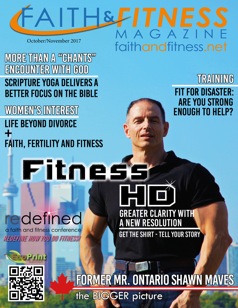(This article is written for both members and fitness professionals because dialog and engagement through an Intrinsic Fitness Survey needs to be achieved by both sides.)
We’ve all seen it. The gym that gives the five-cent tour and then pushes for another membership can be found in every city. And – in each of those gyms you’ll find members who are dissatisfied, frustrated, aimless and looking for something more.
Instead, look for the gym where staff, with digital tablet in hand, take a seat on the floor and have friendly conversations with members.
Successful fitness facility owners and managers know that a good gym has an ideal location, top-notch equipment, first-class customer service, competitive rates, flexible hours and clean facilities. That is what it takes to make a GOOD gym. To make a GREAT gym they have to do one more thing – give you what you need and want.
If you’re like most people you probably haven’t ever made an actual list of the personal needs you want your gym to meet. However, like the many other members at your gym you could share with staff with relatively good accuracy how well your gym is meeting your needs and where they could do better. Human nature can appear to be contradictory. We may not be able to list what we want but we keep looking to satisfy our deepest needs.
CONTACT US to learn more about organizing and executing a spiritual survey at your gym.
Think about the products and services you like best. Chances are the businesses that deliver them to you have done their homework. They haven’t just identified a need to be met, they’ve asked many questions, done research, tested, gathered feedback, made modifications and continually focus intently on your real needs rather than your surface wants.
Countless research has been done to help fitness professionals understand the importance of doing evaluations with new members to customize a personal fitness plan. If you don’t identify goals and achieve certain outcomes, you’ll keep going to other gyms until you do. Or a more common result will happen — you’ll quit altogether. That has huge implications on individuals, social communities and the fitness culture. It is likely a key factor in why some fitness businesses have relatively stagnate growth, are sold to another owner or close altogether.
PEOPLE NEED AND WANT MORE THAN EXERCISE
Consider for a moment some life factors and the impact they would have on both a person’s overall well being and their level of fitness success:
- Family crisis or other relationship issues
- Financial concerns and difficulties
- Physical health problems, chronic illness or terminal condition
- Addictions and behavioral problems
- Stress, time constraints and demands
- Personal expectations, dissatisfaction and fears
These are broad categories for a much longer list of significant life concerns that people have. Your gym staff may have been trained to identify and discuss these kinds of challenges and even outline a physical fitness course of action. If however life factors are not being viewed and addressed within a spiritual needs context, then proposed physical solutions will lack spiritual solutions. To achieve effective intrinsic fitness solutions in a short term but especially long term (lifestyle changes and strength) you must have both physical and spiritual solutions.

Effective and successful fitness businesses do what churches should be and often are doing – paying close attention to members deeper needs, delivering spiritual support and strategies and delivering that through an incarnational approach.
INCARNATIONAL WHAT? >Tap for drop down details.
An important trend isn’t so much what is being done but rather who is doing it and how they are doing it. Expect to see more Christians connecting one-on-one with individuals through fitness. Jesus showed that Christians are to get among people, spend time building relationships, and communicate the gospel within an existing culture.
nitiatives such as Simple Church and Fresh Expressions don’t just examine why this is important and what it looks like, they provide significant instruction and resources to help Christians live faith 24/7 everywhere as compared to just attending a brief religious gathering in a sanctuary. Many of today’s major Christian leadership conferences like C3, Catalyst, and Hillsong among many others are aggressively working to guide next-generation Christians in what is in fact the ancient practice of the faith.
As Rob Moss explains in Why We Will No Longer Be A Welcoming Church, “Welcoming, from a missional perspective, is passive. It denotes waiting for visitors and guests to drop by.
Inviting is different. Inviting is active. Being an inviting church means that we leave the comfort of Sunday morning worship and seek out our neighbors. Being an inviting church starts with who God has called us to be as church and mandates joining God at work in the world.”
Physical fitness, be it at the gym, group exercise, personal training or an outdoor recreational activity or sport is potentially a more frequent activity and a more naturally engaging environment for faith to be lived, shared and discovered. The big idea of Jesus is God coming to earth in human form to physically live among us — God incarnate. Fitness ministry celebrates this most profoundly. The pain, the sweat, the challenge, the temptation, the hunger, the imperfections … everything physical directly correlates to the spiritual, not because the similarities can be made but because they were never intended to be separate or exclusive.
A Washington Post article examining how Christians can best reach today’s culture shares a perspective from Millennial blogger Ben Irwin, “When a church tells me how I should feel (‘Clap if you’re excited about Jesus!’), it smacks of inauthenticity. Sometimes I don’t feel like clapping. Sometimes I need to worship in the midst of my brokenness and confusion — not in spite of it and certainly not in denial of it.”
When those doing fitness ministry fully embrace an incarnational mindset then everything physical is valued as spiritual. What some may see as the most problematic for fitness ministry: provocative clothing, cussing, bad attitudes, sexuality, obsessions, anger and more are rich opportunities for incredible spiritual growth and strength.
Christ-Influenced Trainers (CIT’s) bring this incarnational approach to personal training by expanding the ways they listen to their clients, better meeting expectations and cultivating more opportunities for improved growth and outcomes.
Individual-centric customer experience (CX) is key to the faith-centered fitness experience. It implies customer involvement at all levels – rational, emotional, sensorial, physical, and spiritual. Faith-centered fitness is not just values-based social-responsibility. It happens when Christians value being socially responsible. What this really means is leaders and members of churches, fitness businesses and communities don’t passively hope that somehow others will see Jesus in them instead they are committed to being keenly involved in every individual opportunity for social collaboration.
Imagine going to a doctor who doesn’t get your full medical history. What value would a nutritionist bring if they only gave you great tasting recipes but didn’t evaluate your dietary needs. Similarly, fitness facilities fall short when they only provide programs and services to addresses physical goals and fail to specifically address members’ fears, frustrations, temptations, confusion and distractions from a spiritual needs point of view.
A gym can help you lose weight, improve coordination, gain muscle mass, reduce your risks and even help make recreation fun for you. They have that down to a science. But – the evidence is clear that good fitness programs and services are not enough. If they don’t meet your spiritual needs it is highly unlikely that you will achieve the success you want. In fact there is a good chance any fitness accomplishments you make will not be permanent. This is common knowledge within the fitness industry and among wellness professionals. The vast majority of fitness facilities only target the physical and in most cases totally ignore the spiritual needs of members and potential members. Why?
UNFOUNDED FEAR – TRAIN THE TRAINER

Several reasons exist. The most commonly cited concern gym owners, mangers and staff express is that discussing anything spiritual is a social taboo. It is politically incorrect and outside the scope of how they do business. Essentially, they fear someone won’t like it.
However, according to Dr. John Boogaert and Douglas E. Noll, principles in the Fresno, California based law firm of Boogaert & Noll and authors of Sex, Politics and Religion at the Office, capitalizing on innate values creates a new competitive advantage. Boogaert, speaks on corporate leadership and strategic planning. Noll is an expert in peacemaking and conflict management. Together, they offer clear ways to open safe discussions without offending anyone or breaking any rules.
What they’ve found is that, “healthy attitudes regarding sex, politics, and religion are affirmed in many of the finest organizations out there. What you may find even more surprising is that they have been utilizing these three powerful elements of human nature for years to create the very core of their corporate culture.”
Discussions can create the very core of a fitness culture where the spiritual concerns and needs of members are addressed.
In a nutshell gym owners and managers need to quit being afraid and instead join with their members to address the spiritual “intrinsic” needs and concerns that are clearly important to them.

Another reason gyms don’t meet the intrinsic needs of members like they could is because they don’t have the know-how and don’t invest strategically in the proper staffing mix.
By ‘staffing mix’ I mean that you recognize that you have team members who bring value to the gym but can’t or won’t engage with members on the intrinsic level described here. It’s very likely this is the case. So, leadership at a fitness facility needs to also hire some staff members that specifically have that capacity and understand that the fitness business wants her or him to regularly use those skills – it’s part of their job description! It is unreasonable to expect a group fitness instructor, swim coach, programming coordinator or other specialized staff person to deliver spiritual support to members until they gain training. That training can take a variety of forms.
A still small but growing number of colleges are providing degree programs that prepare graduates to be equally competent in both physical and spiritual skills. Institutions like William Jessup University are delivering instruction and training, like that by Dr. Scott Roberts, for a new generation of fitness professional that is knowledgeable and skilled in both kinesiology and theology or wellness and counseling. Look for some of these institutions to offer non-degreed versions of this instruction on a continuing education basis to professionals in the fitness and wellness industries and among counselors and church leadership. Stephanie Gibson of the the Frank P. Phillips YMCA in Columbus, Mississippi, hosted a chaplain training course. The course is designed to help anyone gain skills at providing meaningful, life changing service to the communities in which they live. Members of the Faith & Fitness Magazine network provide a wide range of training services. CONTACT US do discuss your businesses specific needs and opportunities. Additionally fitness services that want to meet spiritual needs can and should strategically network with other professionals and service providers in their community.
Few gyms recognize the opportunity they have to grow their business by having staff members with basic skills in psychology, counseling, sociology, theology and life coaching. Meeting the spiritual needs of members is not a set of skills that every staff person will have or want to have. However, fitness businesses that want to deliver this level of member care should get support to define staff positions and job descriptions and then hire and train those who can and want to help them grow the businesses strategic plan and reputation for meeting the spiritual needs of members.
THE IMPORTANCE OF THE SURVEY
However, even if gyms get past unfounded fears and equip staff properly they will not meet members’ spiritual needs until they know what those needs are. To accomplish this they must ask and learn. Good gyms already gather important member data related to health, medical history, personal preferences, fitness goals and more. Understanding the spiritual motivations of members is critical to developing programs and services that will target member needs.
Spiritual surveys aren’t difficult to develop but they do need to be designed so that they are neither abrasive to the sensibilities of members nor ineffective in their ability to gather real and relevant information.

[This article includes information originally presented by Brad Bloom, publisher of Faith & Fitness Magazine at Club Industry 2007. Since then we’ve continued to improve and develop solutions for fitness professionals through redefined – a faith and fitness conference. ]
A spiritual survey can help both the gym/fitness business and member/client better define motives, drivers, attitudes, roadblocks, experiences and stakeholders. Yes! Stakeholders are other people invested in the spiritual health of members. They may be other family members, friends, co-workers, professionals or existing and potential acquaintances.
S piritual surveys aren’t difficult to develop but they do need to be designed so that they are neither abrasive to the sensibilities of members nor ineffective in their ability to gather real and relevant information. Technology makes it especially easy for members and more readily measurable for management and staff. However, self-administered online surveys remove a critical component — the one-on-one, face-to-face interaction. It is through this important form of engagement that body language and layered follow-up questions can often produce the more robust response and highly useful information. Beyond the design of the survey, a gym’s staff can benefit from some basic training in effective communication skills for the survey. While a poorly executed survey could set off alarms in the minds of members, a well-executed survey will establish the gyms reputation and commitment to excellence.
piritual surveys aren’t difficult to develop but they do need to be designed so that they are neither abrasive to the sensibilities of members nor ineffective in their ability to gather real and relevant information. Technology makes it especially easy for members and more readily measurable for management and staff. However, self-administered online surveys remove a critical component — the one-on-one, face-to-face interaction. It is through this important form of engagement that body language and layered follow-up questions can often produce the more robust response and highly useful information. Beyond the design of the survey, a gym’s staff can benefit from some basic training in effective communication skills for the survey. While a poorly executed survey could set off alarms in the minds of members, a well-executed survey will establish the gyms reputation and commitment to excellence.
Almost every gym has decent equipment, sufficient hours and a staff that can get the job done. But – if you’re going through a divorce, battling an addiction, enduring grief, struggling to make life work right or dealing with some other spiritual concern you need something more. Feeling the burn in your muscles doesn’t distract from the sting of heartache. Loosing weight doesn’t mean you’ll gain confidence. Reducing your risk for heart attack or disease isn’t the total solution to increasing peace of mind. Until these and other spiritual needs are identified and then met you and other members will not achieve total wellness. Until gyms recognize and then execute the expanded role they must serve they will not grow their membership like they could.
In most cities there are several gyms from which you can choose. Do your own survey and find one that will give you a spiritual survey and then deliver services and provide care based upon it.
This article was first published in 2007 and was updated for the culture and leadership departments in the October/November 2017 issue of Faith & Fitness Magazine.

Download this article’s social media graphic and share this story on your social media.










